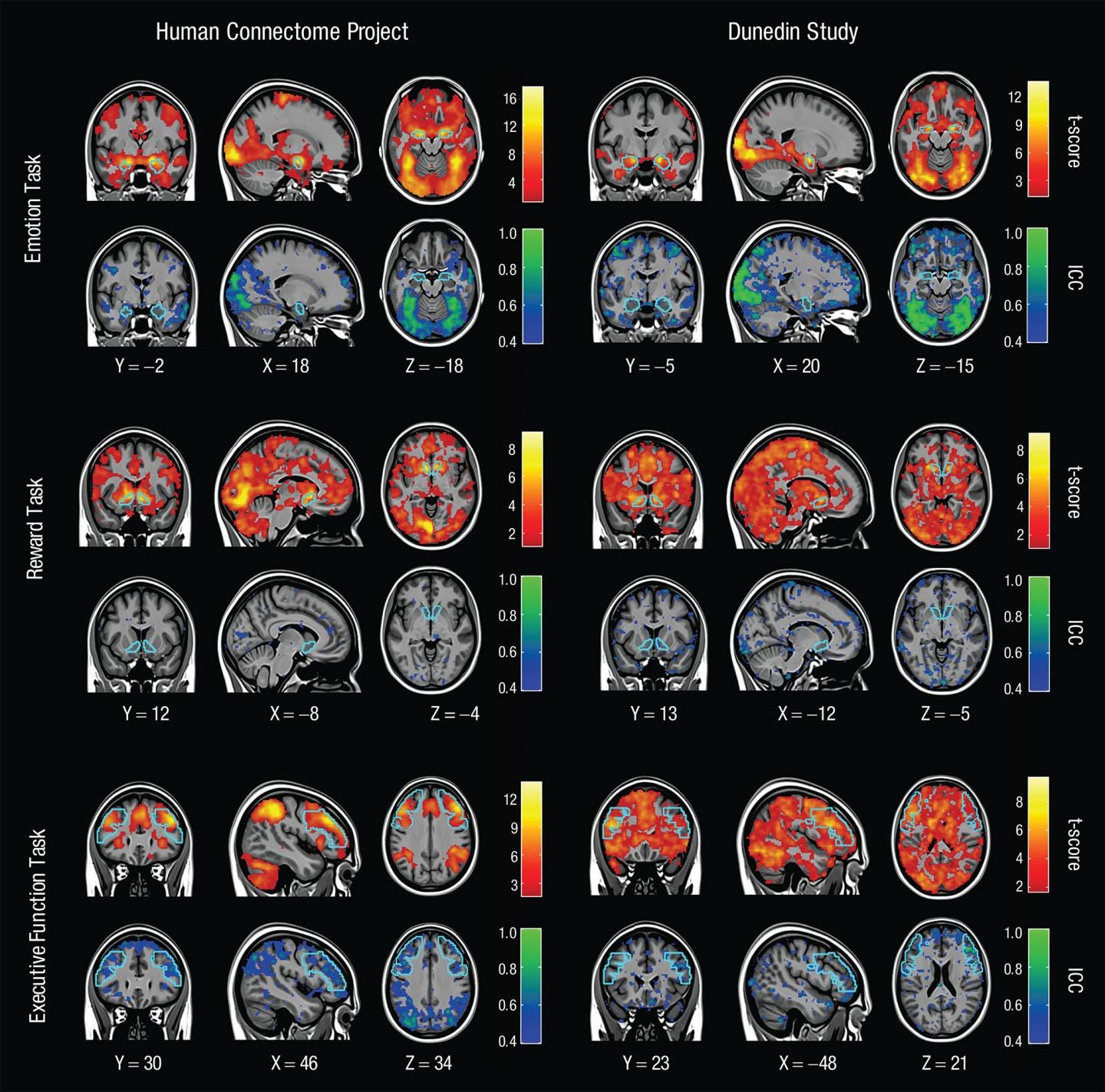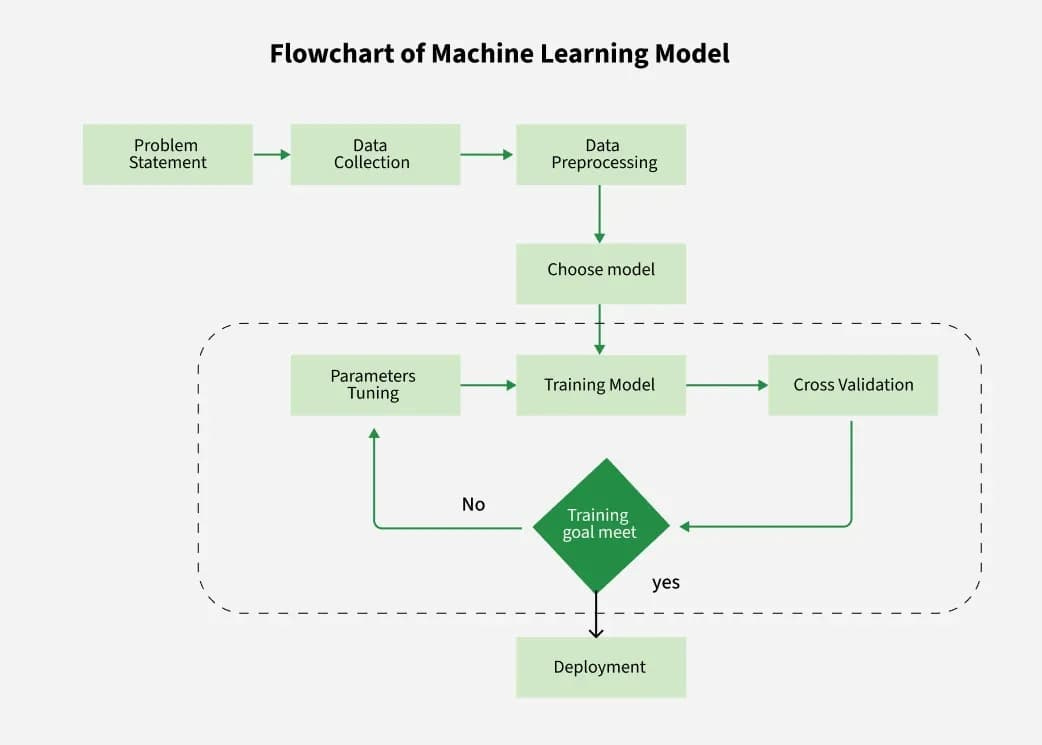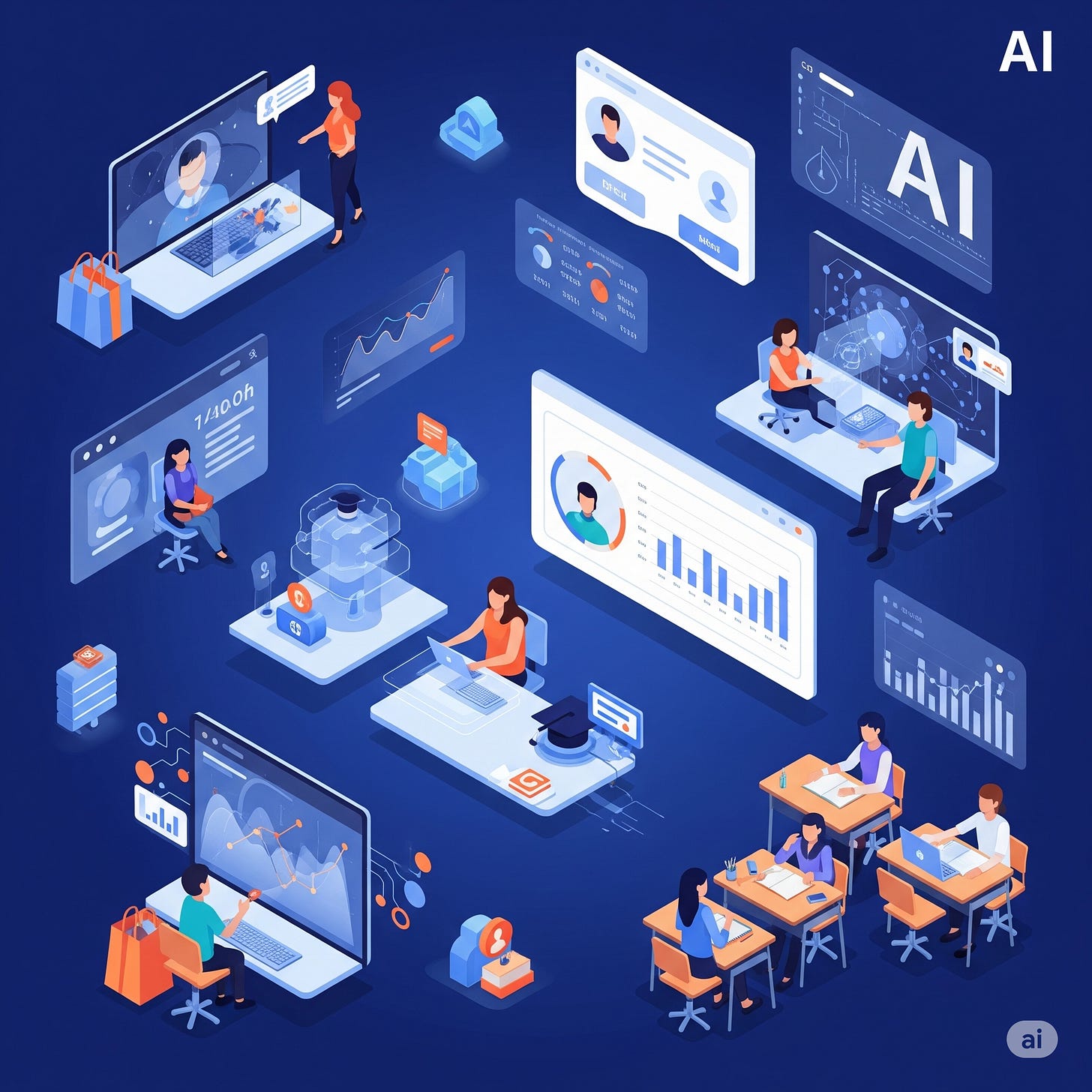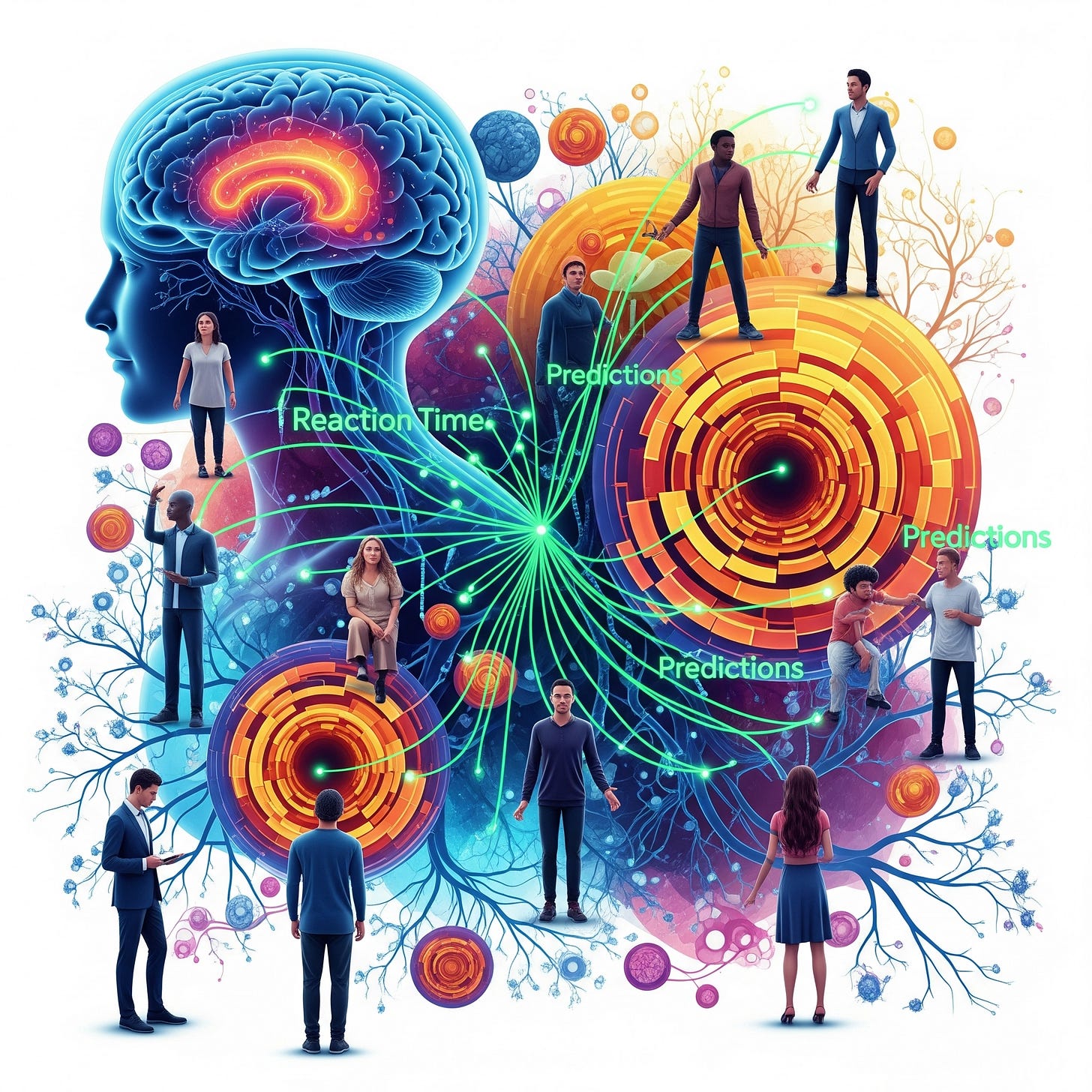Centaur Unveiled: The AI Breakthrough That Mirrors Human Thought
Discover the Technology That Aligns Machine Intelligence with Human Reasoning
Centaur: AI-Powered Human Behavior Prediction
Helmholtz Munich’s research team has developed Centaur, an AI model trained on ten million-plus decisions from psychological research. With remarkable precision, it predicts human decision-making in new situations, paving the way for deeper understanding of cognitive processes.
Table of Contents
🕖 TL;DR
🚀 Introduction
🔬 The Science Behind the Magic
💡 Real-World Applications and Implications
✨ What Makes Centaur Special
🌍 The Broader Impact on AI and Society
🏁 Final Thoughts
TL;DR
Revolutionary Accuracy: Centaur outperforms traditional psychological models and can predict human behavior in tasks it has never seen before
Massive Training Dataset: Built using Psych-101, containing over 10 million decisions from 60,000+ participants across 160 psychological experiments
Technical Innovation: Uses advanced QLoRA (Quantized Low-Rank Adaptation) fine-tuning on Meta's Llama 3.1 70B model
Neural Alignment: The AI's internal processes naturally align with human brain activity patterns, despite never being trained for this
Broad Applications: Potential uses in clinical psychology, behavioral research, product design, and understanding mental health conditions
Open Science: Both the model and dataset are publicly available on Hugging Face for researchers worldwide
Future Expansion: Plans for Psych-201 dataset with 100 million choices from nearly 1 million participants
Introduction
Imagine an AI that can peer into the depths of human cognition and predict your next move before you even make it. Enter Centaur, an AI model developed by researchers at Helmholtz Munich that's rewriting the rules of how we understand both artificial and human intelligence.
Named after the mythological creature that combines human and horse characteristics, Centaur represents a hybrid approach to AI that bridges the gap between human psychology and machine learning.
Built on Meta's powerful Llama 3.1 70B language model and trained on over 10 million human decisions from psychological experiments, this "mind-reading" AI has achieved something that has eluded scientists for decades: the ability to predict human behavior across virtually any scenario with stunning accuracy.
The Science Behind the Magic
Traditional AI models excel at specific tasks like AlphaGo dominating the game of Go. Yet they struggle with the remarkable generality of human cognition. Humans effortlessly switch between mundane decisions like choosing breakfast cereal and complex challenges like solving scientific problems. Centaur breaks this mold by demonstrating genuine behavioral generalization across diverse cognitive domains.
The foundation of this breakthrough lies in the Psych-101 dataset, a meticulously curated collection of human behavioral data that reads like a comprehensive map of human decision-making. This dataset includes natural language transcripts from 160 psychological experiments, capturing everything from gambling decisions to memory tasks, problem-solving scenarios to learning paradigms.
Centaur's development represents a masterclass in efficient AI training. Rather than training a massive model from scratch, the researchers used QLoRA (Quantized Low-Rank Adaptation), a parameter-efficient fine-tuning technique that modified just 0.15% of the original Llama model's weights. This approach dramatically reduced computational requirements while achieving remarkable performance gains.
The model's architecture incorporates several key innovations:
Natural Language Processing: All experimental data is encoded in human-readable text format, making it accessible to language models
Behavioral Prediction: Rather than just predicting average responses, Centaur captures the full distribution of human behavioral patterns
Temporal Modeling: The AI can predict not just what decisions people will make, but how long they'll take to make them
Real-World Applications and Implications
Clinical Psychology and Mental Health
One of the most promising applications lies in clinical settings. Centaur's ability to model individual decision-making patterns could revolutionize how we understand and treat mental health conditions. The model shows particular promise in:
Depression and Anxiety Research: Understanding how these conditions affect decision-making processes
Personalized Treatment: Developing tailored therapeutic approaches based on individual cognitive patterns
Early Detection: Identifying subtle changes in decision-making that might indicate emerging mental health issues
Research and Development
For researchers, Centaur functions as a "virtual laboratory" that can simulate human behavior without the time, cost, and ethical constraints of traditional human studies. This capability opens doors to:
Rapid Prototyping: Testing psychological theories and interventions in silico
Cross-Cultural Studies: Exploring how different populations might respond to various scenarios
Longitudinal Research: Modeling behavioral changes over time
Commercial and Educational Applications
The model's predictive capabilities extend far beyond academia:
User Experience Design: Creating interfaces that anticipate user needs and behaviors
Educational Technology: Developing personalized learning experiences that adapt to individual cognitive styles
Market Research: Understanding consumer behavior without extensive surveys or focus groups
What Makes Centaur Special
The Neural Alignment Phenomenon
Perhaps the most fascinating aspect of Centaur is its spontaneous neural alignment. Despite never being explicitly trained to match human brain activity, the model's internal representations show remarkable correlation with fMRI brain scans of people performing the same tasks. This suggests that by learning to predict human behavior, Centaur has essentially reverse-engineered aspects of human cognition.
Beyond Average Behavior
Unlike traditional models that predict average responses, Centaur captures the full spectrum of human behavioral variability. It doesn't just tell you what most people would do—it can model the entire distribution of possible responses, including edge cases and individual differences that make human behavior so richly complex.
Reaction Time Mastery
Centaur's ability to predict reaction times represents a significant breakthrough. The model's predictions align with Hick's Law, which states that response times increase with the number of available choices. With a conditional R² of 0.58 for predicting human reaction times, Centaur demonstrates a deep understanding of the temporal dynamics of human cognition.
The Broader Impact on AI and Society
Ethical Considerations
The development of AI that can predict human behavior with such accuracy raises important questions about privacy, autonomy, and the potential for manipulation. The research team has committed to open science principles, making their work transparent and accessible to ensure responsible development and deployment.
Scientific Revolution
Centaur represents what researchers call a "turning point for cognitive science." For the first time, we have a model that combines the interpretability of traditional psychological theories with the predictive power of modern AI. This breakthrough could accelerate our understanding of the human mind and lead to new discoveries about consciousness, decision-making, and the nature of intelligence itself.
Future Developments
The team is already working on expanding their dataset with Psych-201, which aims to include 100 million human choices from nearly one million participants. This massive expansion will likely improve the model's accuracy and extend its capabilities to new domains like social psychology and cross-cultural behavior.
Final Thoughts
Centaur marks a significant leap in AI, offering a future where artificial intelligence comprehends the human experience, not just processes data. This model bridges human psychology and machine learning, opening new avenues for mental health treatment, scientific research, and human-centric technology.
Its implications reach beyond the lab. With AI poised to predict human behavior accurately, responsible development is crucial. The researchers' dedication to open science sets a promising precedent for sharing such powerful technologies.
Centaur provides a compelling preview of what's possible when human and artificial intelligence converge. The future of AI lies in creating machines that genuinely understand what it means to be human.
Sources:
Helmholtz Munich - "AI That Thinks Like Us – and Could Help Explain How We Think"
Nature Journal - "This AI 'thinks' like a human — after training on 160 psychology studies"
Study Finds - "New 'Mind-Reading' AI Predicts What Humans Will Do Next, And It's Shockingly Accurate"
Tech Xplore - "Centaur: AI that thinks like us—and could help explain how we think"
The Debrief - "Groundbreaking New AI Trained on Psychology Studies Can Predict Human Behavior with Stunning Accuracy"
Content was researched with assistance from advanced AI tools for data analysis and insight gathering. 













